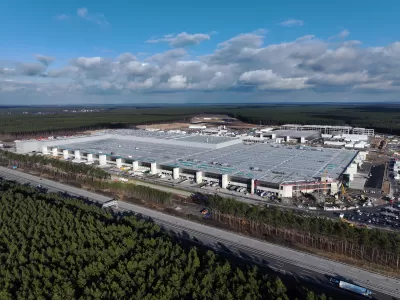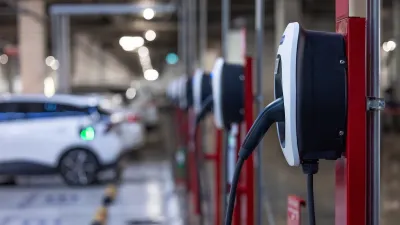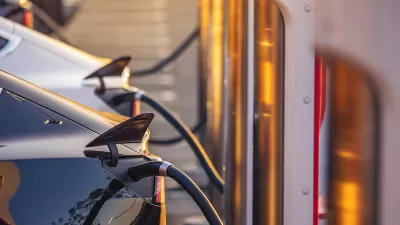Locals are employing a tool historically used for sports stadiums to ensure they benefit from the new project as much as the companies do.

Auto manufacturer Ford and a Korean company called SK Innovation have proposed an electric vehicle manufacturing complex in rural western Tennessee. Despite being promised 6,000 good-paying jobs, residents of surrounding towns are wary that the development will “change the community, suck up water and electricity, and prompt an influx of newcomers and development,” according to Katie Myers, a climate solutions fellow for Grist.
“They are only the latest to face uncertainties with energy transition projects, which, from solar fields to wind farms, have prompted reservations about their size, industrial activity, and environmental impacts. But rather than accept their fate, the constellation of towns orbiting Stanton are sitting down with Ford and SK to negotiate a binding agreement that will ensure they benefit from Blue Oval City as much as the companies do,” writes Myers.
The community benefit agreement—a tool historically used by communities dealing by entertainment and sports developments—is a binding contract between a corporation and a coalition of local organizations that gives the community legal leverage to make sure commitments are kept.
Myers reports that CBAs are increasingly being used to address clean energy developments like this one, with several being signed just in the last three years. “The contracts resulted in projects agreeing to give preference to local hires, and in companies sharing revenue with the county in which they operate. An offshore wind facility in Maine even underwrote rural broadband access.”
Stipulations these rural Tennessee communities want Ford/Blue Oval SK to abide by include resources like youth facilities, road maintenance support, and apprenticeship pathways run by local union chapter, as well as binding assurance of proper waste disposal.
Vonda McDaniel, the president of the Central Labor Council of Nashville and Middle Tennessee, who is helping to formulate Blue Oval agreement, CBAs are a great tool to “help ensure a measure of democracy in a part of the country where voter disenfranchisement, especially in rural, Black communities, is high and private interests have the ear of state government,” writes Myers.
However, for a CBA to be successful, a company has to sit down with the community—a step that hasn’t happened yet, though the local coalition are hopeful they’ll have an agreement drafted and sit down with Ford in the new year.
FULL STORY: A huge EV factory is coming to west Tennessee. Here’s how locals are ensuring they benefit.

Trump Administration Could Effectively End Housing Voucher Program
Federal officials are eyeing major cuts to the Section 8 program that helps millions of low-income households pay rent.

Planetizen Federal Action Tracker
A weekly monitor of how Trump’s orders and actions are impacting planners and planning in America.

Ken Jennings Launches Transit Web Series
The Jeopardy champ wants you to ride public transit.

California Invests Additional $5M in Electric School Buses
The state wants to electrify all of its school bus fleets by 2035.

Austin Launches $2M Homelessness Prevention Fund
A new grant program from the city’s Homeless Strategy Office will fund rental assistance and supportive services.

Alabama School Forestry Initiative Brings Trees to Schoolyards
Trees can improve physical and mental health for students and commnity members.
Urban Design for Planners 1: Software Tools
This six-course series explores essential urban design concepts using open source software and equips planners with the tools they need to participate fully in the urban design process.
Planning for Universal Design
Learn the tools for implementing Universal Design in planning regulations.
Ada County Highway District
Clanton & Associates, Inc.
Jessamine County Fiscal Court
Institute for Housing and Urban Development Studies (IHS)
City of Grandview
Harvard GSD Executive Education
Toledo-Lucas County Plan Commissions
Salt Lake City
NYU Wagner Graduate School of Public Service





























